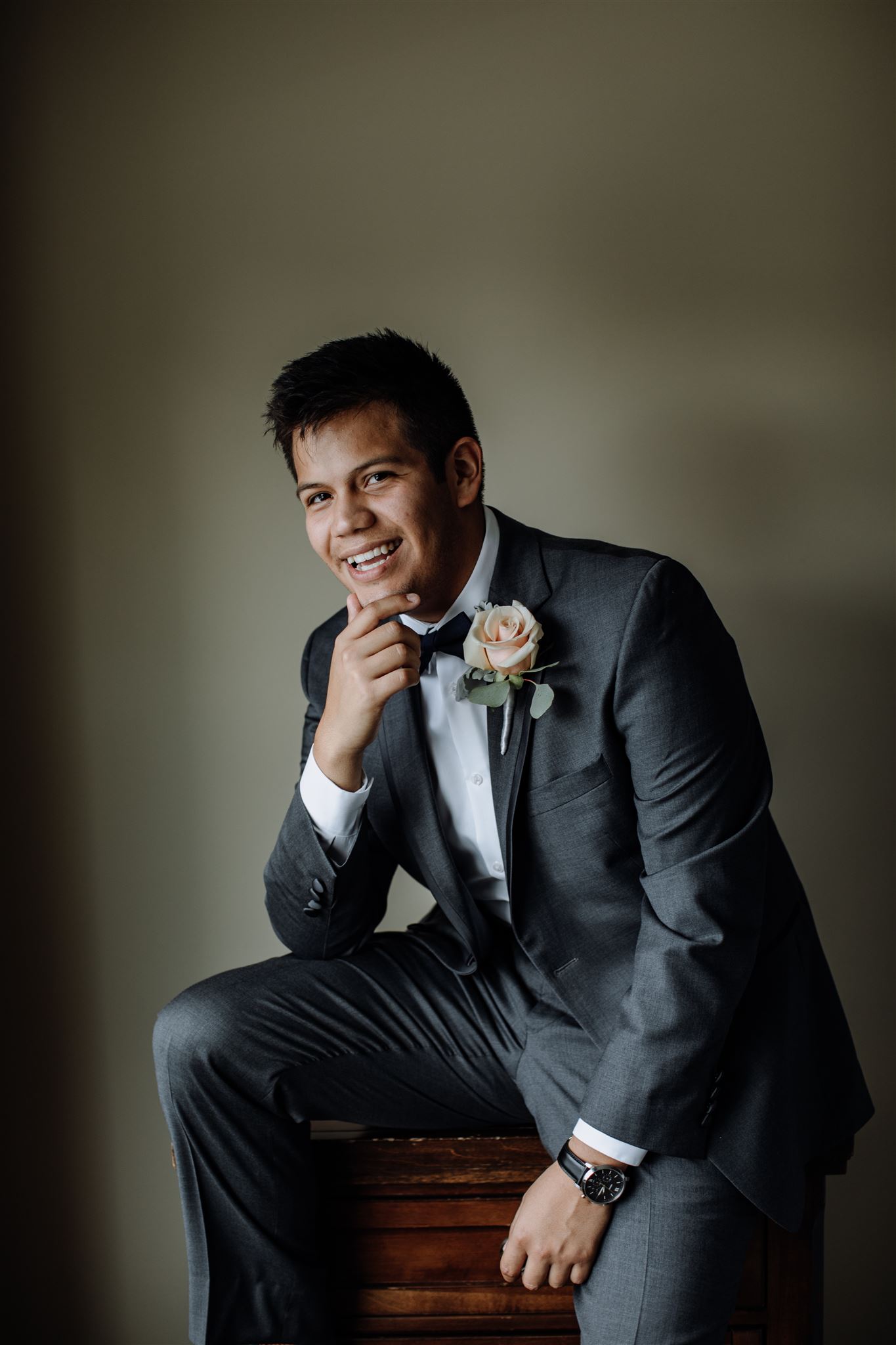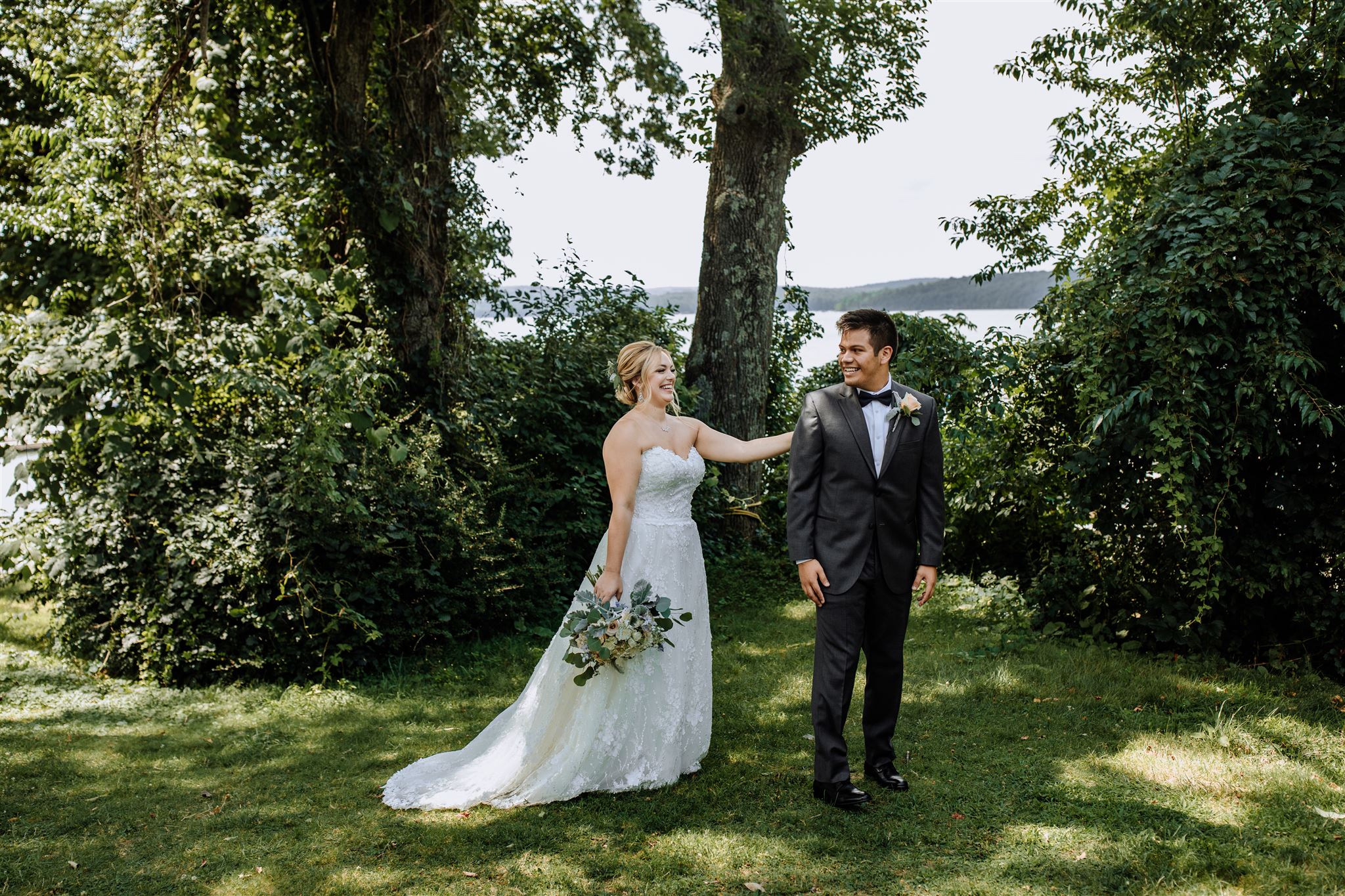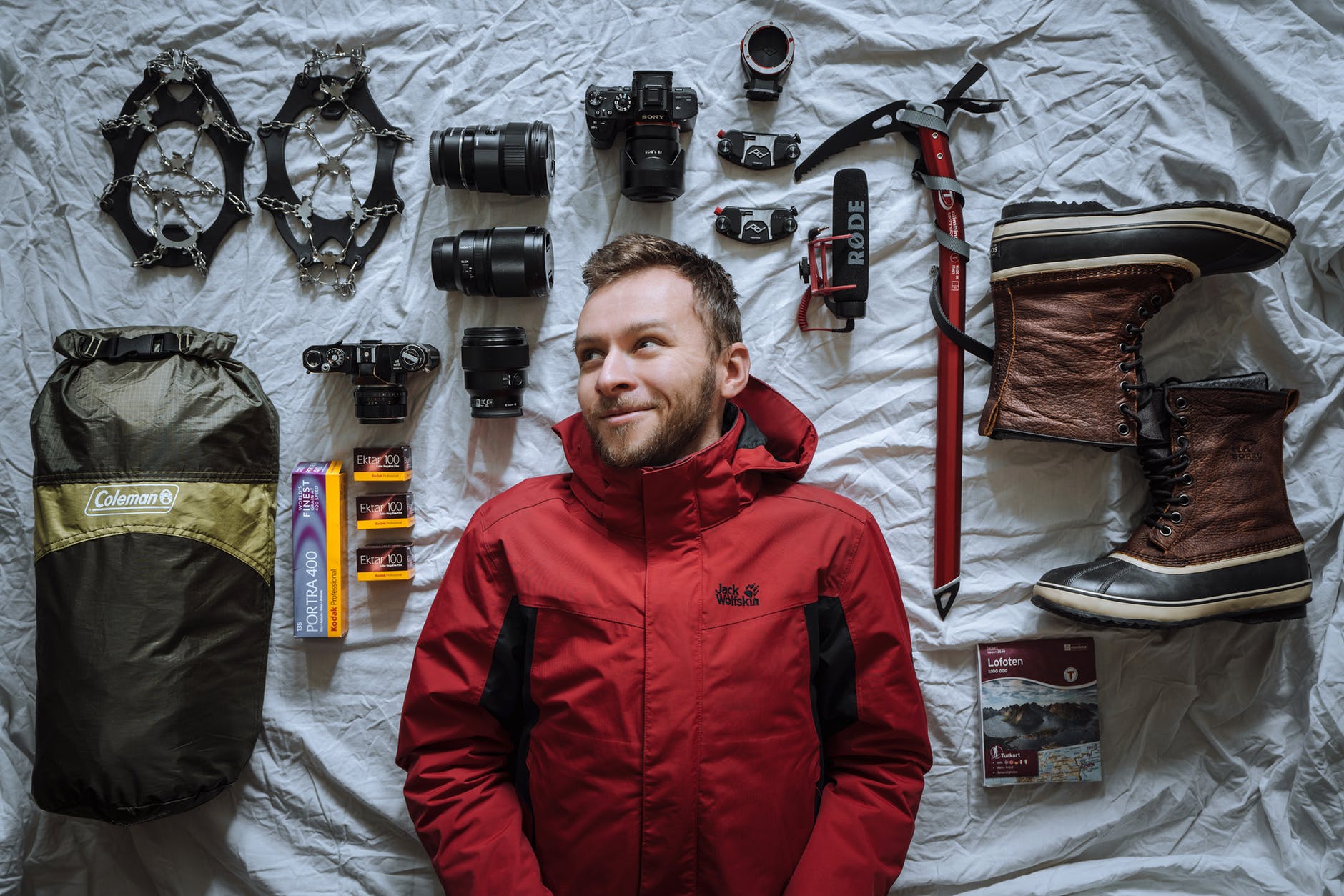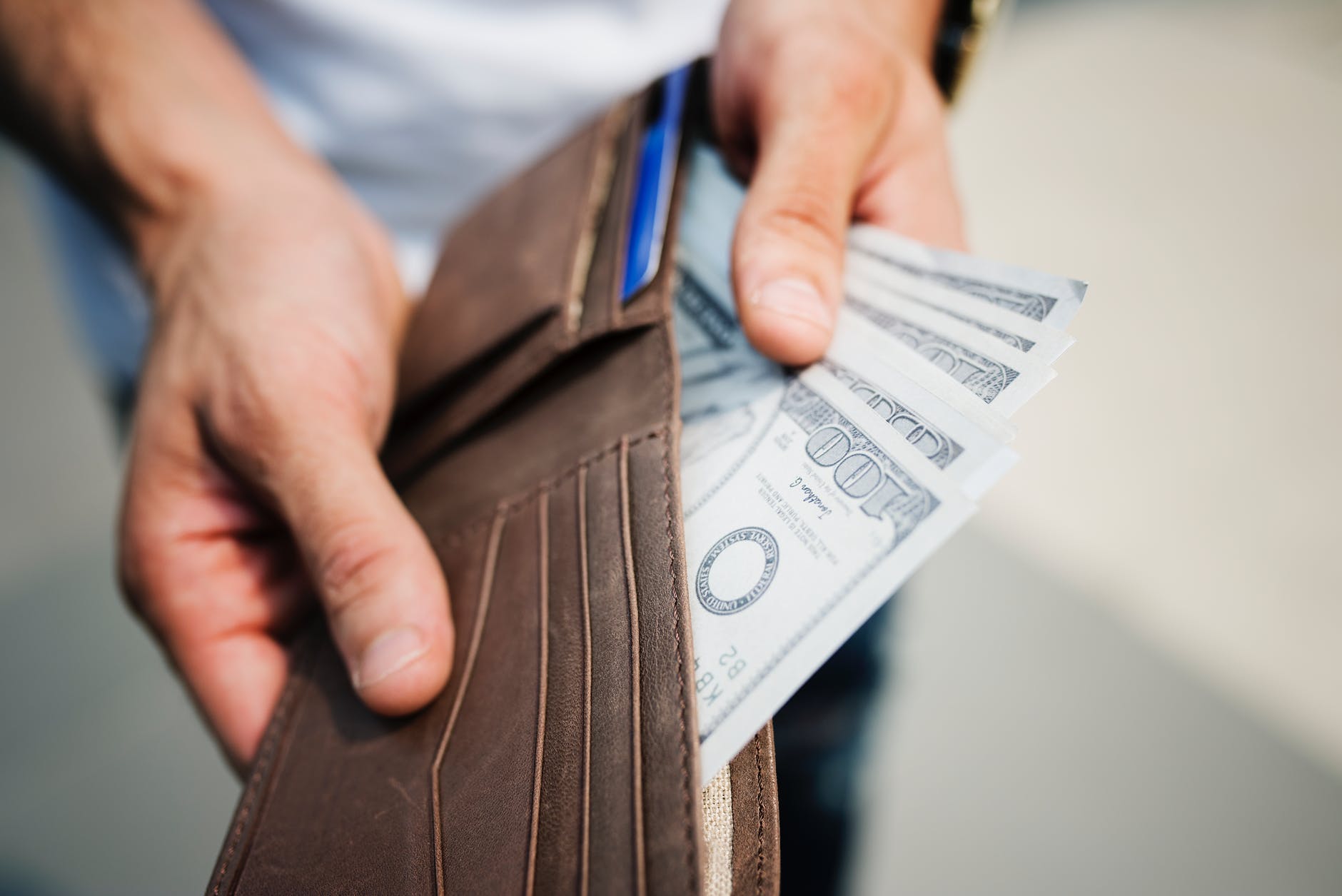Last Updated: February 14th, 2020
On this website, we talk often about how you can grow your photography business, make money, and live a really cool lifestyle that most people only dream about. With a lot of hard work and determination, we’ve managed to do this (and you can too!).
As we focus our eyes on “success” – we can sometimes overlook the costs that come with it. Out of all the personal and business challenges you will face, managing your money and having enough to afford the things you need (and even some things you want) to run a great photography business can be tough.
In this post, we’re going to talk to you about how much money you should expect to need to start your own photography business. We’ll give you our real life experience as we invested quite heavily in our business early on. We’ll also cover some additional things you will want to keep in mind that might impact how much you need to spend.
Let’s get started…
How Much Money Does It Take to Start a Photography Business?
Simple answer: $15,000 – $30,000 USD
The first 2 years of running our own photography business saw us spend roughly $30,000 dollars on camera equipment and business services we deemed necessary to produce high quality images consistently with our artistic preferences AND provide a high quality customer experience from their initial communication with us to their gallery delivery and beyond.
At the $30,000 price point – we afforded camera gear for 2 photographers (we are a husband & wife team – read more about us here). For a person wanting to start their own solo photography business, costs will be much lower – easily closer to $15,000.
Note: most of the costs to start a photography business come from buying equipment. If you already have the cameras, lenses, and flashes you already would want to use as a professional photographer – your costs will be dramatically lower.
How Photography Niche Effects Total Startup Costs
 Before we can talk much more about how much you should expect to need to start your own photography business, we feel it’s important to talk about how your niche plays a role.
Before we can talk much more about how much you should expect to need to start your own photography business, we feel it’s important to talk about how your niche plays a role.
For those who don’t know, your photography niche is all about the subject of your photographs.
You need to answer the following questions:
- What kind of photos do I want to take?
- Who do I want to take photos for?
Common career paths in photography for startup photographers include…
- Weddings/Events
- Portraits
- Landscape/Documentary
- Commercial/Real Estate
The perks of starting your own business vs. working for an already established studio is you can keep yourself open to shooting whatever potential work may come your way. We are primarily wedding & portrait photographers, but not long ago got a gig doing commercial photography for a movie theater chain in our area.
Why niche selection matters when it comes to costs –
 Let’s start with an example…
Let’s start with an example…
The gear and other things needed for a wedding photographer to do their job is very different than what a real estate photographer may need.
We’d actually imagine a real estate photographer could get by with a single camera & a few key lenses – and outside of spending a little on advertising, starting up a website, and so on – the investment capital needed to start a real estate photo business is pretty cheap.
On the other hand, wedding photography business startup costs are actually higher because wedding days vary so widely. Having a range of high quality and reliable lenses that work for both wide and close up shots is essential to effectively tell wedding stories with photographs. Not to mention, you will need a good flash lighting setup thanks to unpredictable lighting situations. Because wedding days are hugely important in your clients personal lives, you will also need backup equipment in case anything would ever fail. There is a lot to consider there…
Some additional things to think about when starting your own photography business…
- Do I need a studio space for the type of work I am doing, or can it all be performed in free or public locations?
- What camera gear do I really need to take the type of pictures I want to take?
- Will I be able to effectively create good pictures in any environment I’d be shooting in?
- Will I be traveling a lot for jobs, or will I keep everything close by?
- What if I don’t know how to do something business-related? Am I willing to figure it out myself, or will I need to pay a professional for help?
These things (and more) will all play into how much it ends up actually costing you to start a photography business.
What did we spend all this money on? (Part 1)
 Now that we’ve shared that we spent $30,000 USD investing in our photography business (over the course of 2 years), we want to get into how we spent it so you can get a real life picture of what actual photography business owners do with their hard earned cash. Maybe you’ll need similar investments, or maybe you think we’re dumb for buying some of the things we did (feel free to lend your thoughts in the comment section!).
Now that we’ve shared that we spent $30,000 USD investing in our photography business (over the course of 2 years), we want to get into how we spent it so you can get a real life picture of what actual photography business owners do with their hard earned cash. Maybe you’ll need similar investments, or maybe you think we’re dumb for buying some of the things we did (feel free to lend your thoughts in the comment section!).
After connecting with many photographers online and in real life before starting our own business, we were able to identify some of the things we needed to be competitive.
The photography industry is completely loaded with people who are aspiring photographers – so offering an excellent service, providing top notch quality, and building a great reputation are the 3 keys to success.
Starting a photography business is, quite simply, like starting any other type of business in a lot of ways. There are “startup costs” – money that needs to be invested into key purchases of equipment, services, and other things.
The most obvious area where we spent our money (and a good chunk of it at that) was on our camera equipment. Before diving into professional photography, we photographed through much of our life on entry level equipment. This works well for hobbyists, but will not hold up for what is required as a photographer selling their services.
The less obvious areas where we have spent our money (especially if you’re new to the world of running your own business) came in the form of all the behind the scenes things that help our business to run smoothly. We got a booking platform service (Honeybook) as it lets us send out contracts & invoice clients (so we can get paid!). We needed to get business insurance. There are a few other key things we got as well.
Part #2: Our Actual Purchases
In the table below, we break down all of our key photography business purchases. This will be great for you if you’re interested in checking out the camera gear and business services we use to take great pictures and run a great business.
[table id=5 /]
Wondering if the gear or services you’re looking at buying will work? Shoot us a message and let us help you!
How did we afford to spend this kind of money on our photo business?
 After reading that we expect the average photographer will need to spend $15,000 – $30,000 to start a photo business, and seeing our gear list, you must be thinking…
After reading that we expect the average photographer will need to spend $15,000 – $30,000 to start a photo business, and seeing our gear list, you must be thinking…
- “Wow, these are a bunch of rich people”
- “They got really great equipment, they must be making a lot of money”
- “They must have taken out a loan or maxed out their credit cards or something”
- “I’m never going to be able to start a photography business, it’s too damn expensive!”
We’re going to address all these thoughts (and more)…
How we made it work:
For the past several years, we have worked extremely hard at both starting a successful photography business and working full time day jobs to support ourselves. In the earliest stages, we took personal savings made working at our corporate day jobs and used them to purchase gear – most notably the Canon 5D Mark III (our review). This was our first professional camera body.
As we began to book clients, first at pretty cheap prices then gradually at more expensive price points, we were able to reinvest all of the money earned back into our business. For the first 2 years, we took very little profit from our business, instead turning around and spending most of what we had earned. This was only possible for us to do because we worked our full time day jobs.
By our 3rd year in the photography industry, we have purchased all of the key equipment we have needed, and now only have yearly recurring costs of around $3,000 (for insurance, bookkeeping, and other business services).
Most of what we earn today is straight profit with pretty minimal upkeep.
As you can see – we were never rich, never gifted a bunch of money by our parents, and didn’t have to start a photography business by going into debt. It has not been an easy road – it’s actually been one of the hardest things we’ve done in our lives because working 80+ hours across multiple jobs consistently for years is not easy. But, the payoff is very rewarding to be full time photographers with very minimal debt and have a reputable business that people want to pay good money for when they could easily get a cheap photographer off of Craigslist.
Just remember: your personal and professional journey as a photographer (and person in general…) is likely going to be different. We showcase our stories to give you an idea of what things might look like for you. We also make it a point to share that pursuing a career in photography, especially one where you are starting your own business, requires a lot of sacrifice and can be very tiring. It’s a reality most people choose to ignore, but ignorance isn’t bliss in this case! If you’re up for the tough times, you deserve all the good times when they come.
5 Tips for Spending Your Hard Earned Money on Your Photography Business
Okay, now that we’ve explained how we made it work – we want to share with you some tips that can help you make it work, too!
…and dang…if all this free advice is helping you out, be sure to share this post on social media!!
Tip #1: Only buy the things you need
Surprise!
One of the biggest problems photography business owners can get themselves into is buying unnecessary equipment. There is, unfortunately, no one size fits all approach to purchasing camera gear and business supplies – but normally common sense will work.
Where you are unsure – it’s really valuable to reach out to other photographers who have been in those shoes. Post a thread on Reddit, join a Facebook group, send a message to a photographer you like – just asking can help you get some good information. You can also check out our Resource pages for recommendations.
For the most part, we were really smart in only buying things we considered essential.
When it came to buying camera lenses (as an example), we would only purchase them if we felt they’d come out of our camera bags at least once per wedding day. There’s no sense in having a 400mm zoom lens for your photo studio if you are never going to use it – so why waste the money?
Tip #2: Write out a list and prioritize
After spending some time doing research, you should write down the name and price of every piece of equipment, every little office supply, and every service you feel you need to run a good photography business.
Once this list is done, you now need to rank things in order of their importance.
For most photographers, updating a camera body will rank very highly. Also for most photographers, getting that neat tilt shift camera lens is probably low on the list of priorities (don’t get us wrong – they’re cool, but not “necessary”).
Tip #3: Invest in phases
We’ve already pointed it out a few times in this post, but if you haven’t picked up on it, we invested $30,000 over 2 years. Breaking it down, that is roughly $1,250/month – basically an extra rent payment for a lot of people. While it’s not exactly cheap, it is much more manageable when you think of it like this.
The way we approached buying our equipment and services was basically like this:
- Phase 1: Get all the absolute must haves ASAP – within the first 6 months we had purchased 2 professional camera bodies, 2 professional grade lenses, and some cheap on camera flash setups. These were the core things we needed to shoot good engagement photos, portraits, and introductory weddings and events.
- Phase 2: Get the “It would be really nice, but I can wait” products – next up, we would pick up less essential but really valuable things. Our 85mm portrait lens (one of our absolute favorites) fit into this category only because it had limited use indoors do to how much space is needed to shoot with it.
- Phase 3: Get the “I want this before I’m done investing” products – these will be the things that save you time, energy, and headaches. We upgraded our cheap flashes to Profoto A1 flashes (our review) for this very reason.
As a business owner, there will always be more money to be spent as time goes on, but the bulk of your spending will happen during these 3 investment phases.
Tip #4: Track your expenses for a tax deduction
The one saving grace for photography business owners having to spend so much money on things is that most of these purchases are tax deductible.
To take advantage of this benefit, you need to:
- Set up as a legal business entity (like an LLC, S-Corp, or Corporation)
- Open a business bank account
There are many great reasons for officially starting a business, and getting a tax break is one of them.
This is a really big area that will require other blog posts to cover in detail – if you’re interested in learning how to set up your own company “the right” way and all that jazz, let us know!
Did you know? Companies like Amazon have mastered writing off their expenses to the point that they end up not having to pay some taxes.
Tip #5: Buy smarter
For the love of photography, look into easy ways to save money on your purchases!
Here are a couple key ways we save money when making purchases of things we need:
- Take advantage of business pricing by getting a free Amazon Business Account (other websites may offer similar things as well).
- Use a business credit card that gives you cash rewards. We have a credit card that gives us 2% back on all purchases. After buying $30,000 dollars’ worth of products & services, we got back $600 total.
- Buy camera gear used (when it makes sense). The only trouble with the used market is that every seller isn’t reliable – and buying a dud could cost you a lot more money that it’s worth. But, with careful research, you could also benefit here.
- Shop around major holidays for extra savings. In our experience, we’ve come across better deals on camera gear around Labor Day, 4th of July, and Christmas. Most of the time, the prices don’t go down so much as we find gear packaged with extra bonus items. The last time we bought a Canon 5D Mark IV – we got it for the same retail price, but it included an SD card, battery grip, and lens cleaning kit. These things add up and decrease the total we have to spend on gear.
- Rent gear you don’t need to own. Sometimes, renting equipment can be more cost effective and frankly easier for beginner photography business owners. Early on, we would rent camera lenses a lot because we couldn’t afford to spend 1-2 thousand dollars out of pocket, but could manage a $50 rental fee for really great gear. A great benefit is this allows you to test out things before committing to a purchase. We like BorrowLenses.com for renting photo gear since it can all be done conveniently online!
Conclusion
Taking your passion for photography and creating a business that can bring in money and a lot of joy when you hear how much your clients love their photos is something that is hard to replicate.
In our lives, our photography business has been closely tied with us achieving our personal goals to not be stuck working in 9-5 jobs forever, and spend more time together & traveling. Because this has been a strong desire for us, it’s helped us to push through even the most difficult of times in the past several years since deciding to give it a go. We wrote more about this experience and how our biggest focus has been to get more out of life.
While our goal with this post is to show you how much you should expect to need to spend getting your own photography business up and running, we understand that all these thoughts about money are enough to get you stressed out and turned off from the idea. We’ve felt that.
But – standing on the other side – we can say that when your business ambitions come together, you can earn enough to offset those costs (and then some).
This year, we crossed 6 figures in photography bookings alone and are able to do photography as our full time jobs. Without the necessary investments early on, we would not have been able to type that sentence. It’s an incredible journey for those who choose to go for it.
So – what do you think? Are you going to give starting a photography business of your own a go?